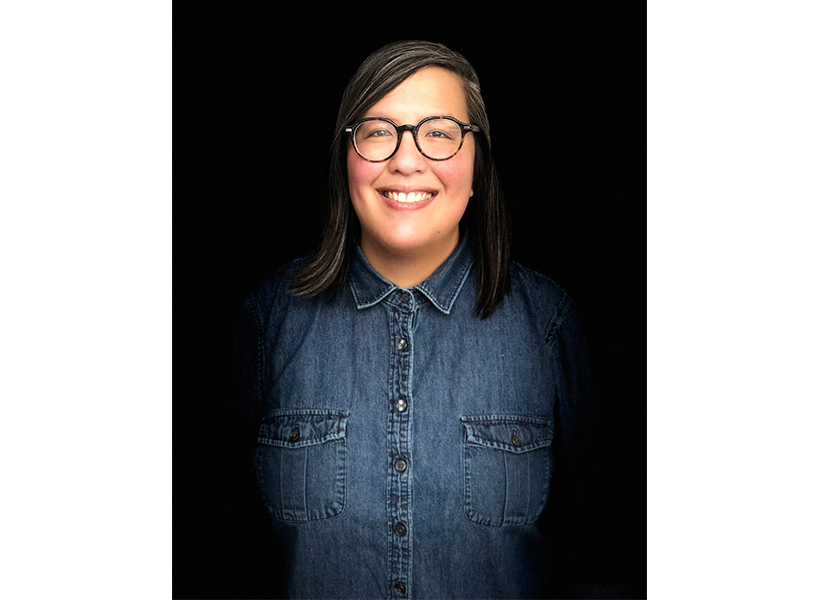Tough Conversations I’ve Had with White People—Including My Wife
Inspired by Ijeoma Oluo's So You Want to Talk About Race, writer Andrea Chiu looks back at incidents of blatant racism in her life and opportunities she's had to discuss race with her white friends and family


“Ask yourself: Am I trying to be right, or am I trying to do better? Conversations on racism should never be about winning. This battle is too important to be so simplified. You are in this to share, and to learn. You are in this to do better and be better.”
Throughout Ijeoma Oluo’s So You Want to Talk About Race, I kept thinking back to this excerpt. Despite triggering flashbacks to frustrating interactions with white people, this book—released this past January—was therapeutic and informative to me.
There have been many times in which white people close to me, without any deliberate hostility, have said ignorant and hurtful things related to race. Sometimes I challenge them. More often, I do not—whether it’s because sometimes I’m too angry to say anything, or that I fear permanently damaging our relationship. Most times, I let these comments slide because I don’t have the clarity of mind, or I just don’t have it in me that day to go through what is sure to be a long, emotional conversation. Despite having these feelings, I recognize that Oluo’s main message is that if we believe in systemic racism and we want to dismantle, these conversations need to happen.
For far too long, I have shied away from these difficult conversations.
One incident that stands out happened almost 10 years ago. At a friend’s house, while in a conversation with a white male stranger, I inquired if a person he was referring to was of Filipino descent. He said responded to me, a woman of Asian descent, that he didn’t know—that they were “just one of those slanty-eyed people.” Dumbfounded by his ignorance, I tried to assess whether he was purposely confrontational or just stupid enough to use that in front of me, the only person of colour in the room.
When the room turned silent, I asked for clarification, “Did you just say ‘slanty-eyed people?’”
He backtracked and said, “Was that racist or something?” Before I could reply, others at the party—all white—downplayed the interaction, saying variations of “Oh, it’s not a big deal,” or “He didn’t mean anything by it.” Keeping the peace won over doing what was right.
I felt then, like I feel now, that it wasn’t the “slanty-eyed” comment that hurt the most. It was how everyone else in the room, many of whom I still have a relationship with and respect—including my partner, who is now my wife—rushed to downplay the severity of his words. Their discomfort around race was so great that their immediate reaction was to quash the conversation. Whether they meant to or not, denying the weight of those thoughtless words acted to feed into systemic racism. It perpetuated the myth that racism does not exist or is not worth addressing.
In the past 10 years I have discussed that night with my partner several times. When it happened, she was horrified by that guy’s comments. Today, she is horrified by the way she handled it. It has taken time for us to get to this point. In the past, she couldn’t bring herself to talk about that night, too ashamed about her reaction. To be fair to her, neither of us were equipped to talk about race then like we are now.
This was before Black Lives Matter and issues of cultural appropriation made headlines. Before media outlets made explicit efforts to cover race through dedicated reporters, newsletters and podcasts. Concepts like “cultural appropriation,” “white privilege” and “microaggressions” were not yet commonplace.
As a society, we are collectively talking more about race, but as individuals there is still a lot of work to be done.
My wife and I have had countless conversations about racism over the years. Two years ago, she didn’t truly contemplate my frustrations with Hollywood’s white-washing problem—why complain about Ghost in the Shell when “Scarlett Johansson is so hot”? Today, she better understands how lack of representation is linked to a system of oppression. We listened to Oluo’s audiobook together, and paused it periodically to reflect on situations throughout our relationship. Eventually, through long conversations, education and listening, she has learned how best to support me and be a true ally.
Thanks to Oluo’s book, and the work we’ve done together, my wife has learned how to talk about race, not just with me but with other white people—including her family. She is the one who explained “white privilege” to her parents. It is in these situations with other white people where we need allies like her most. When white people talk to each other about racism, it is less likely to come across as accusatory or “angry” as it would from a person of colour.
In So You Want to Talk About Race, Oluo talks about how even her own mother, who is white, had difficulty grappling with the dos and don’ts of talking about race.
“Even with the people that love you, and where you think everything is fine, [race] is really not something you can skip [talking about],” she said in a conversation about her book on the podcast With Friends Like These. Oluo’s mother, who initially felt like an honorary Black person, did not realize that even though she had raised Black children, she could not fully understand their experience. This space between them was difficult at first, but in time, Oluo’s mother embraced her role.
“She was able to find her place. And find [that] she does still belong as my mom, as my friend, as a community member, and as someone who cares deeply about ending racism,” said Oluo on the podcast. “She has a place as a white woman in this struggle. Giving her that, giving her that place where she could make the most difference energized her.”
Ten years ago, my wife didn’t have the knowledge or tools to stand up to the idiot at the party. Today, she promises if that situation were to happen again, she would not let it stand. I know it to be true. Having conversations about race takes time and a lot of emotional energy, but they are a crucial part of fighting systemic racism.
“If we continue to treat racism like a giant monster that is chasing us, we will forever be running,” says Oluo in her book.
In our efforts to do better, we need to stop running and start talking.
Read more from Andrea Chiu:
The Problem with Rewatching Friends (All the Sexism, for Starters)
10 Chefs, Brewmasters & Sommeliers Talk Sexism in the Industry
Are You Being Discriminated Against Because of Your Name?








